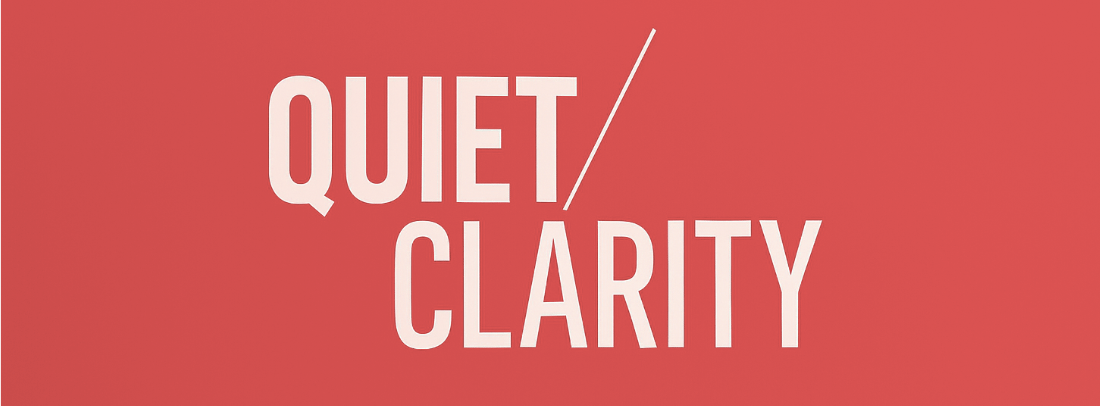
Quiet Clarity is a 2x/week newsletter and podcast for people who want to build a life of presence, depth, and deliberate intention.
Has this ever happened to you?
A big client drops you. A job rejects you. A relationship ends.
Your mind spirals into negative emotions, replaying what went wrong.
You did your best, gave it everything, but it still wasn't enough.
So you live in the gap—beating yourself up, feeling worthless, wondering why you even tried.
But what if every loss was actually steering you toward something better?
Where It Showed Up in My Life
Last week, a big client told our team they were dropping us.
I started spiraling, but then asked myself two questions:
Did I do my best to keep them? Yes.
Was this out of my control? Yes.
That's when it hit me—I had done my best, now I had to let go.
Instead of living in the gap (feeling worthless), I chose the gain (finding lessons).
If they didn't have funding, this saves them costs and maybe brings them back later.
If they weren't seeing results despite our efforts, now we know to focus on clients where we drive clear value.
What the Wisdom Reveals
In 1985, Steve Jobs was fired from Apple.
The company he created. The company he built from his parents' garage.
As Apple grew, Jobs clashed with other leaders. The board took sides against him.
One day, he walked into a meeting and was told he no longer had a job.
At first, Jobs felt lost. Everything he'd worked for was suddenly gone.
But then something shifted.
"Getting fired from Apple was the best thing that could've happened to me," he later said.
Instead of staying bitter, Jobs saw it as a chance to begin again.
He started NeXT. He bought a small company called Pixar.
Pixar became legendary—Toy Story, Finding Nemo, The Incredibles.
NeXT developed revolutionary software.
For 12 years, Jobs was separated from Apple.
But he wasn't living in the gap. He was living in the gain.
Then something remarkable happened.
Apple was near bankruptcy. They needed new technology. They bought NeXT.
And with that purchase, Jobs returned.
He launched the iMac, iPod, iPhone, iPad.
Apple went from near-death to becoming the world's most valuable company.
If Jobs had stayed stuck in the gap, Apple might not exist today.
But because he focused on the gain—turning rejection into redirection—he transformed failure into the foundation of something unprecedented.
His firing wasn't the end of his story. It was the chapter that made everything else possible.
How I'm Trying to Live Now
Am I living in the gap of what I lost, or the gain of what I'm becoming?
I've learned to ask two questions when things don't go my way:
Did I give it my absolute best?
If not, I know what to do differently. If yes, I release.
The Gap and the Gain concept is simple but profound:
The Gap: Beating yourself up, feeling worthless, seeing only loss.
The Gain: Finding lessons, using setbacks as fuel, seeing life as growth.
You can't control outcomes, but you can control your response.
Do your best, then let go.
Trust that the path leads where you're meant to be.
When you do your best, you don't live in regret about the past.
When you release results, you don't live in anxiety about the future.
You live fully in the present, in peace.
Every client that drops, every job that rejects, every door that closes—ask yourself:
What if this is the universe redirecting me toward something better?
What if my biggest failure is setting up my greatest success?
Because sometimes the best thing that can happen is losing everything you thought you needed, so you can find everything you were meant to have.

